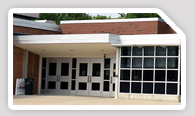Title I and Parents Right to Know
Under the Every Student Succeeds Act (ESSA), parents/guardians of schools receiving federal Title I funds have the right to know the professional qualifications of their child’s classroom teachers, including:
- Whether a teacher has state certification for the grade levels and subjects he or she is teaching;
- Whether a teacher is teaching under emergency or other provisional status through which state qualification or licensing criteria have been waived;
- Whether the teacher is teaching in the field of discipline of the certification of the teacher;
- Whether their child receives services from paraprofessionals and, if so, their qualifications; and
- Whether their child has been taught for four or more weeks in a row by a teacher “who does not meet applicable state certification or licensure requirements at the grade level and subject area in which the teacher has been assigned.”
Parents/guardians may request their child’s classroom teacher’s professional qualifications by contacting Superintendent Lauren Crisman at 518-993-4000, ext. #1000, with any questions.
School Responsibilities
Schools are responsible to provide high-quality curriculum and instruction in a supportive and effective learning environment that enables the children served in Title I schools to meet the state’s student academic achievement standards.
Parent/Guardian Responsibilities
Parents/guardians will support their children’s learning in the following ways:
- Monitoring attendance.
- Making sure that homework is completed.
- Monitoring their child’s screen time.
- Volunteering in their child’s school.
- Participating, as appropriate, in decisions relating to their child’s education.
- Promoting positive use of their child’s extracurricular time.
- Staying informed about their child’s education and communicating with the school by promptly reading all notices from the school or the school district either received by their child, by email or ParentSquare, or by mail, and responding, as appropriate.
- Serving, to the extent possible, on advisory groups, such as the Title I School Improvement Team or the Policy Committee.
Communication
Parent/guardian-school communication is essential to the learning process and is a shared responsibility. The district will:
- Provide high-quality curriculum and instruction in a supportive and effective learning environment that enables the participating children to meet the state’s student academic achievement standards.
- Hold parent-teacher conferences during which school and parent/guardian responsibilities will be discussed as they relate to the individual child’s achievement.
- Provide parents/guardians with frequent reports on their children’s progress.
- Provide parents/guardians with reasonable access to staff.
- Provide parents/guardians with opportunities to volunteer and participate in their child’s school, and to observe school activities.
Read more
NYS Education Department information about Title I and Parent Involvement:
Parent and Family Engagement Guidance (nysed.gov)
Intervention Processes
Frequently Asked Questions about Response To Intervention (RTI), Academic Intervention Services (AIS) and School Based Intervention Teams (SBIT).
Harry Hoag Elementary School
When are students referred to AIS/RTI?
Before referring students, teachers gather further data and information in the classroom and apply appropriate Tier I supports. The majority of referrals should be submitted and reviewed at approximately the 5-week, 15-week, and 25-week marks of the school year, although they may be submitted at any time following the first weeks of school. Students displaying risk on multiple academic performance measures may be considered for intervention in the areas of reading and/or math. The RTI/AIS referral form is used to refer students in grades K-3 for RTI services and students in grades 4-6 for AIS services.
The following criteria are considered to identify at-risk students. It is not necessary that all performance criteria listed below be met to qualify for intervention services, but the student should meet multiple entrance criteria.
- Urgent Intervention STAR score for Reading or Math
- Failing overall grade in ELA or Math
- For reading: Reading level is 1 or more grade levels below expectations
- For Kindergarten: Score in the lowest 20% of grade level on the most recent grade-wide assessment for ELA or Math
- For Grades 4-6: Level 1 or 2 on NYS test
When are students referred to SBIT?
The purpose of SBIT is to serve as a problem-solving team working to address the needs of at-risk general education students by examining the underlying reasons that students might be experiencing academic or behavioral difficulties and assembling practical, classroom-friendly interventions to address those student problems. The goal is to ensure that students’ academic and behavioral needs are being met in school in order to foster successful school experiences.
Academic SBIT referrals:
- Student must currently be receiving RTI/AIS services and must be demonstrating insufficient progress in response to those interventions before being referred to SBIT, which is a more intensive problem-solving process.
- Multiple interventions at the Tier I and Tier II service levels should have been attempted and documented, with limited success. Interventions from previous school years may be included in this consideration.
- Student is performing well below grade-level expectations (e.g., urgent intervention on STAR; reading 1+ years below grade level) and not sufficiently responding to intervention.
Behavioral SBIT referrals:
- Multiple interventions should have been attempted and documented, with limited success. Interventions from previous school years may be included in this consideration.
- Consultation with the behavior specialist and/or principal should occur prior to referral.
When are RTI/AIS meetings held?
For Grades K-4, academic intervention data review meetings take place at approximately the 5-week, 15-week, and 25-week marks of the year. Additional meetings may be scheduled for specific students as needed.
For Grades 5-6, meetings are scheduled as referrals are received. Referrals may be submitted at any time following the first month of the school year, and it is recommended that referrals be submitted at approximately the 5-week, 15-week, and 25-week marks of the year.
When are SBIT meetings held?
Meetings for students being followed primarily due to academic needs will automatically be scheduled on a regular basis every few weeks. Meetings for students followed primarily due to behavioral needs will initially be scheduled by request, with follow-up meeting dates set by the team based on need.


